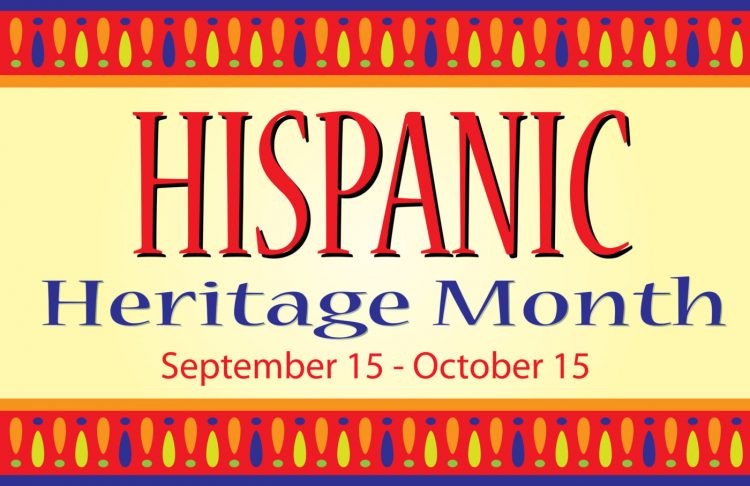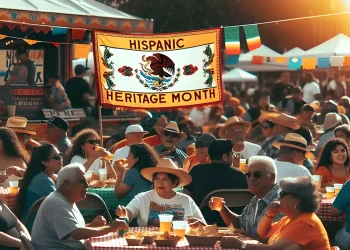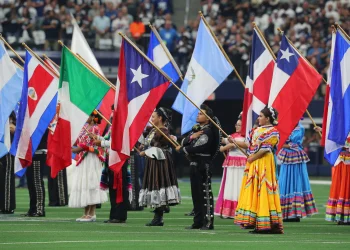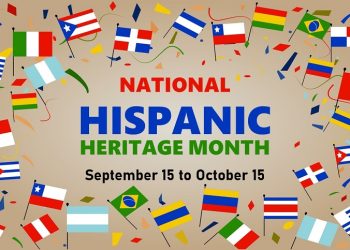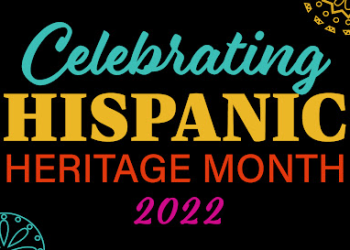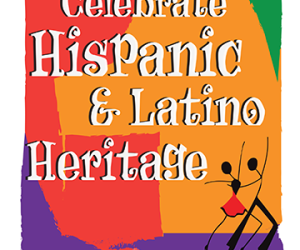National Hispanic Heritage Month
As we celebrate National Hispanic Heritage Month, I am reminded of the Hispanic comedian who once joked that even in the month we are given to celebrate our heritage, we still have to cross a border.
National Hispanic Heritage Month
National Hispanic Heritage Month runs from September 15 – October 15 each year and this year I can think of no more of an appropriate theme to characterize this celebration than crossing borders.
For Hispanics, this year has been all about crossing borders, beginning with the fierce immigration debate generated by the government’s desire to stem the flow of illegal immigrants to the United States, mostly from countries south of our borders (all of Latin America, not just Mexico) as these immigrants cross the borders of this country by land, sea and air in search of a better life.
Hispanics cross borders from all directions to come to this wonderful land of opportunity and to reach a level of prosperity that we otherwise might not be able to obtain in our home countries. Yet for some reason we have the impression, whether real or imagined, that we are not wanted here. While it is very true that there are some who would prefer a country void of Hispanics (and other minorities, for that matter) the reality is that in a country as diverse as the United States, acceptance of Hispanics is probably more common than rejection. Assuming that is true, why do we tend to feel like we are not wanted?
In my opinion, this feeling of isolation within the United States has much more to do with another border many Hispanic immigrants choose not to cross once they have entered the country: the language border. While it is important to maintain our heritage and our culture, it is equally as important to learn the language of this country. Although the local, state, and federal governments attempt to attend to the needs of the monolingual immigrant Hispanic population by providing translation for elections, for court appearances, and other services at public offices, it is the duty and responsibility of Hispanics to make the effort to learn English and cross this border that hinders the progress of monolingual Hispanics.
An Argentine once told me that if he had to parachute out of an airplane into a remote region of China, he would have to learn Chinese or he would starve, as it is highly unlikely that the government would provide translation for him. In the US, the government spends millions of dollars providing translation services and translating documents, but in doing so, they may perpetuate the lack of English knowledge by Hispanic immigrants. What does it hurt to learn the language of your host nation? If anything, it will give rise to new financial and educational opportunities and help break down the cultural barriers that a limited knowledge of English presents.
By no means am I suggesting that Hispanic immigrants abandon their different cultures and become “gringos.” As a proud Puerto Rican, I do not try to hide my ethnicity, but at the same time I realize that a constant and overt display of my ethnic pride can sometimes be harmful. It is important to strike a balance between where we come from and who we are, to balance our origin and our character. Like every single Latino in this country, not only am I defined by my ethnicity, but I am also defined by my character, my skills, and the other components of my personality.
As a group we Hispanics tend to consistently define ourselves solely by our point of origin, our common language, and by our closely related cultures. This is a double-edged sword, because in accentuating our differences, we drift farther away from the necessary assimilation that will help us to get ahead. While it is very important to maintain our culture and remember where we came from, it is doubly important that we make the necessary changes in the way we value education and social mobility.
Rather than attributing blame for our problems to some unproven conspiracy theory that the mainstream is actively trying to hold Hispanics back and hinder our progress, we need to accept responsibility for our own failures and make the necessary changes to rectify the situation. We currently lag behind the mainstream in education, in median income, and we have a higher incidence of fatherless families and teen pregnancies. How much of this can we really blame on white people and the establishment that runs this great nation?
I am not saying that institutional racism and discrimination do not exist, because clearly they do exist. But the onus is on us to do our part to help minimize the effects of these ills. As they say in sports, “the best defense is a good offense.” If we are undereducated, we need to work harder to become educated to compete with mainstream individuals, thus demonstrating that we are at par and just as capable of success as our mainstream counterparts. If we lack English language skills or our accents make our attempts at communication incomprehensible, we must work harder to improve our mastery of the English language and minimize the accent so as to be understood.
The benefit that is to be reaped from our efforts to improve is that at the very least people will view us more as equals, rather than a group that falls short in areas that are essential to moving forward and to individual and collective success. People in general have an irrational fear of the unknown and different, and exhibit a certain amount of tentativeness, particularly when dealing with cultural differences. We minimize those differences by improving ourselves and demonstrating our competence and competitiveness. Every individual improvement we make collectively moves us forward, and even if it did not, do individual improvements ever really hurt? Of course not.
Crossing the cultural border is not as difficult as it seems, and it certainly does not have to come at the expense of denying our heritage. I feel that one of the biggest problems that we have as minorities is, as I stated, that we tend to define ourselves by our race, ethnicity, or sexual orientation. Again, it is perfectly acceptable to define ourselves this way, but what gets lost in this necessary celebration of diversity is acknowledgement of those traits and characteristics that unify us to the mainstream.
We spend so much time embracing what makes us different that it overshadows the things that we have in common–the very things that unite us. Part of the reason there exists so much divisiveness in this country is because we refuse to define ourselves under one uniting umbrella, as an American race, if you will. We prefer to define ourselves as several competing races, and the only time we really do come together as an American people is on patriotic holidays (sometimes) and tragic days of remembrance such as September 11.
Again, by no means am I insisting that we stop identifying ourselves as Hispanics and stop celebrating our differences. I am only suggesting that we work a little harder to assimilate, as it is one of the things that will help us to progress and move forward. It is high time that we embraced not only our cultural differences but also our uniting similarities. In doing so we will cross the last great border that holds us back, the border of divisiveness. Only then will we truly begin making large and quick strides and moving forward as a people.
Finally, we must concentrate our efforts on looking forward to a brighter future, rather than trying to reclaim a past that should be behind us. Case in point: in the immigration debates that obsessed the political world earlier this year and curiously fizzled out once Congress reached an impasse, one of the arguments that immigrant Hispanics put forth was that the western and southwestern states once belonged to Mexico, and that the wave of illegal immigration was a “reconquista” or a retaking of what was once theirs.
It is this kind of irrelevant, flawed logic that keeps us living in the past and turning our backs to a brighter future as we focus our futile efforts on fruitless claims. It is this sort of silliness and ignorant thinking that holds us back as a people. In focusing on the past we build a new border to cross, because we block our view to the future and create a mental border that becomes increasingly difficult to cross. We constantly look for some sort of compensation for past wrongs, rather than focusing our energy on improving ourselves and crossing those borders that will lead us to better futures. We will never move forward if we consistently look back.
As we enjoy the cultural festivities of this month of celebration, let us remember to cross those borders that hinder our progress, moving forward to the brighter future that awaits us down the road.
by Juan E. Rodriguez, MBA, diversity scholar, author, and editor of Diversity Jobs .
